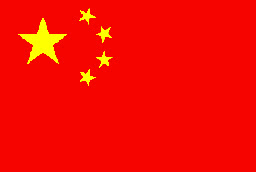
China has reacted to recent product recalls saying they are politically motivated. Speaking on what CNN described as a carefully choreographed’ television show, Li Changjiang told an audience of Chinese and foreign journalists the safety concerns regards the ‘made in China’ label were exagerated. "More than 99 percent of our goods meet standards," he said, "Demonizing Chinese products or talking of the Chinese product threat, I think, is simply a new kind of trade protectionism." He cited examples of product recalls including the Mattel made Big Bird and a Thomas the Tank Engine train set made by the RC2 Corporation. He pointed to the fact that only the eyebrows on Big Bird contained lead and that the only part in the train set was a stop-sign. "Children won't eat this sign, or smell it every day. The effect is very limited," Li said.
"It's exaggerated. In the first example it was the eyebrows which exceeded standards. And in this whole set, it's only the stop sign. It's not fair to say China's products are not up to scratch. Not fair at all." He said the recall was large because it was hard to distinguish which parts contained lead and which did not [CNN]
However, Li failed to mention that lead was also found in significant quantities on other Thomas the Tank Engine parts. The Daily Mail reported in June that lead paint was found on several items in the Thomas & Friends Wooden Railway range. They included a Red James Engine; a Red Skarloey Engine; a Red Water Tanker Truck; a Red James No. 5 Coal Tender. Others on the banned list were a Red Hook & Ladder Truck; a Red Lights & Sounds Engine; a Red James No.5 Lights & Sounds Coal Tender; a Red Musical Caboose; and a Yellow Railroad Crossing Sign.
Meanwhile China is to send officials to the US in August and September to discuss the issue of product safety [CNN]. But a trade war looms as China today sent back what they called faulty ‘made in the USA’ pacemakers. The General Administration of Quality Supervision, Inspection and Quarantine said the shipment of 272 pacemakers valued at about $250,000 that arrived in Shanghai in April did not meet standards [Reuters]. Interestingly it is not the first time US made pacemakers have been the subject of quality control in China. In 2001 China's State Drug Administration (SDA) Tuesday issued an urgent notification of a nationwide investigation of cardiac pacemakers produced by the US-based St. Jude Medical, Inc. The statement said incompetent joint welding for the "Tempo" implantation pacemakers may incur early exhaustion of the batteries and lower their reliability.

No comments:
Post a Comment